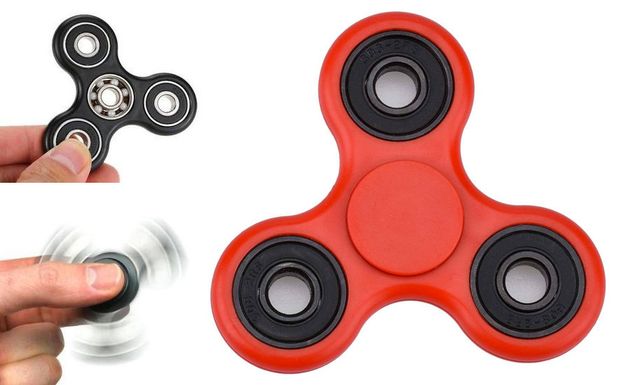Fidget spinner: A tool to improve your mental health? Here's the answer

The link between physical body movement and brain functioning and growth is a well-established. Movement of various organs affects the brain at multiple levels, sometimes increasing the heart rate which pumps more oxygen into the brain and promotes the release of right hormones in the body that help in the growth of brain cells.
However, with the advent of technology and ever-increasing addiction to everything digital, it has more or less driven people further away from the physical world. The positive association between hand movement and brain function is made evident by such theories as the ‘cognitive load theory’ where while dealing with complex thoughts people tend to offload some of the cognitive load to movements, thereby devoting more effort to the mental processes. Such theories bring to light habitual bodily movements or ‘fidgeting” involving paper clips, pens or the current crave called fidget spinners, as movements/habits that effect neurological functioning.
Mental disorders and effectiveness of fidget spinners
According to an old study by the University of California Davis Mind Institute, constant movement or fidgeting can help ADHD-affected children improve their cognitive control performance, linking their hyperactivity to better mental functioning. The research was based on a trial-by-trial analysis with data collected from 26 children with ADHD diagnosis and 18 who were developing typically and acted as controls, where they were asked to focus on directions in which the middle arrow in a series of arrows is pointing, inhibiting their attendance at other arrows flanking the arrow in question.
The researchers found that the accuracy of the affected children was more significant while they were moving indicating that intense activity or any physical movement that utilizes cognitive resources are helpful in improving focus, stress and anxiety.
Fidgeting has earned a more popular stance due to the tiny spaceship-like spinners available across almost every toy store. The oddly-shaped fidget spinners that spun on a thumb or a finger are being marketed in such a manner, and people are agreeing to its effects, that they seem to help them get through boring or unpleasant tasks. The toy is also receiving a lot of criticism with people terming them as “helicopters of distraction” and banning them in hundreds of schools across the country.
On the other hand, Alejandro Lleras, a psychology professor at the University of Illinois, opines that fidgeting may be a way of capturing people’s arousal or engagement in an activity in order to improve performance, but overuse can have a negative impact. He suggests that its use should be limited. “When you are perfectly matched to the environment and stimulated in the right way, you can do things for hours, like professional athletes,” he says. But, the device may be just a “fun toy” rather than a tool to promote concentration.
Therefore, more research is required to confirm the role of fidgeting devices in improving mental health disorders such as anxiety and ADHD. There is no one-size-fits-all approach in treating mental illnesses. Help from a trained health care professional is a must before starting on the road to recovery.
Self-help strategies can mitigate the severity of the symptoms to some extent but a more evidence-based approach is essential to achieve long-lasting recovery. According to Dr. Mark Stein, director of ADHD and related disorders at the Seattle Children’s Hospital, “fidget spinners should not overtake proven methods of treating the condition.”